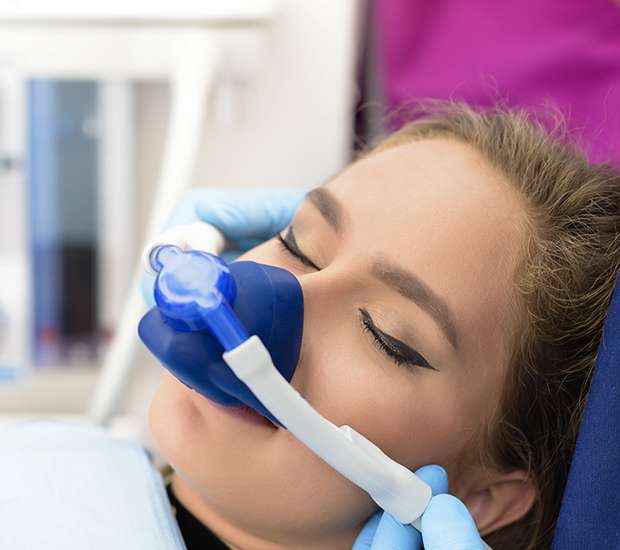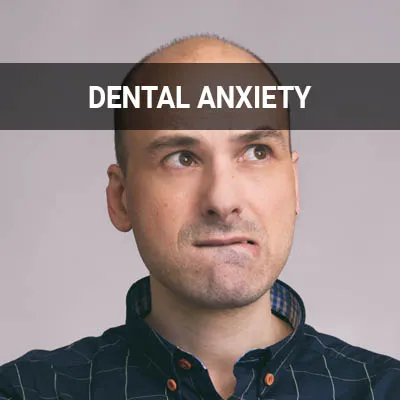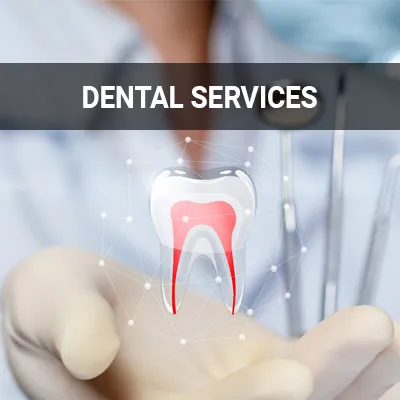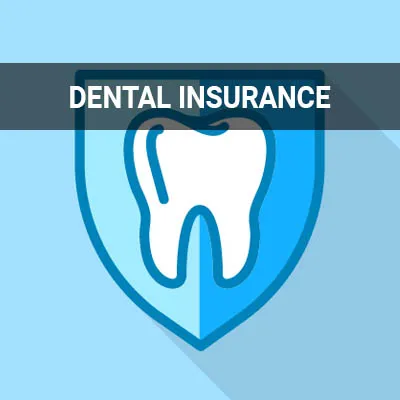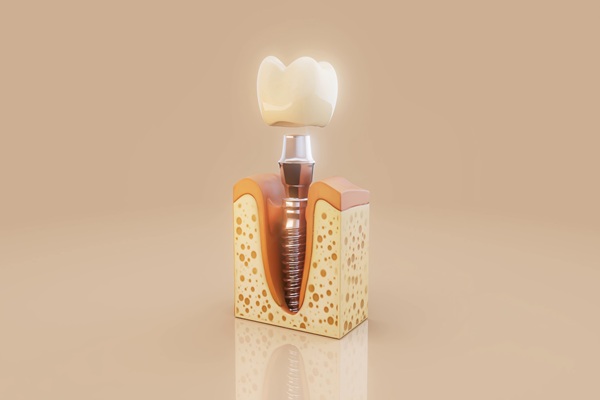Sedation Dentist Aurora, CO
Modern dentistry offers a variety of techniques to help patients stay comfortable during dental procedures. Learning more about these techniques can ease patients' concerns about the procedures they need. A sedation dentist uses medication to provide patients with a safe and comfortable dental care experience. Sedation can make necessary dental procedures much easier and is one of several options available to manage pain and anxiety at the dentist's office.
A sedation dentist is available at Smile with Care Dental At Southlands in Aurora and the surrounding area. If you need dental work but feel anxious about what it entails, discuss how sedation can address your concerns. A qualified dentist can inform you about various options and make recommendations based on your concerns and medical history. Call us at (720) 250-9818 to schedule an appointment.
When to See a Sedation Dentist
Visiting the dentist causes extreme worry in many patients, but they can often combat this stress by being sedated during dental procedures. A sedation dentist is trained to provide patients with medication that can relieve anxiety by making them feel drowsy and relaxed. The American Dental Association has strict guidelines in place to determine which of the following types of sedation is most suitable for individual patients.
- Minimal sedation: Nitrous oxide, commonly known as laughing gas, allows the patient to remain fully alert and aware of what is happening throughout the procedure. This medication commonly causes patients to feel relaxed and lightheaded. It is the most common form of sedation used in dentistry.
- Moderate sedation: Oral medication makes patients feel drowsy during their procedures. The effect of the medication may be strong enough to cause some patients to slur their speech and forget the procedure process. It must be taken an hour before the procedure begins.
- Deep sedation: Strong medication is administered through an IV. This allows the medicine to take effect more quickly and provides deeper sedation. Although most patients remain awake, they are extremely groggy and have little to no recollection of the procedure afterward. Some patients may fall into a light sleep but can be awakened easily once the dental procedure is complete.
“A sedation dentist is trained to provide patients with medication that can relieve anxiety by making them feel drowsy and relaxed.”
Who Should See a Sedation Dentist
Many patients have no problems visiting the dentist, but those who deal with anxiety and fear often have a difficult time staying still for a procedure. A sedation dentist can also help people who have a low pain threshold, sensitive teeth, a bad gag reflex, or require extensive dental work. In some cases, a person's dental fears are so strong that they avoid seeing the dentist altogether. This could negatively impact oral health if a person does not receive the necessary services to care for their teeth properly.
Patients with these issues should consider seeing a sedation dentist so they can relax during necessary dental procedures. The longer a patient waits before having oral problems addressed, the more extensive the damage will be. Therefore, it is a good idea for patients to seek the help of a certified sedation dentist immediately after realizing they struggle with an aversion.
“A sedation dentist can also help people who have a low pain threshold, sensitive teeth, a bad gag reflex, or require extensive dental work.”
Receiving Sedation At the Dentist’s Office
A sedation dentist may provide various types of sedation, including minimal sedation, IV moderate sedation, and deep sedation. Common forms of minimal sedation include nitrous oxide inhalation or pills. Depending on the dosage, pills can also be used to produce moderate sedation.
Sedation dentists can also provide IV moderate sedation in the dental office. This involves administering sedatives through a vein to take effect quickly. Deep sedation will put patients asleep, so they do not experience any pain or discomfort during the procedure. However, this form of sedation requires at least three dental professionals to be in the room to monitor the patient.
“A sedation dentist may provide various types of sedation, including minimal sedation, IV moderate sedation, and deep sedation.”
Check out what others are saying about our dental services on Yelp: Sedation Dentist in Aurora, CO
Preparing for a Sedation Procedure
Sedation can help patients get through most types of dental procedures. Preparation is key to making things go smoothly. Taking the following steps can help patients get the dental care they need with minimal pain and anxiety:
- Ask about available sedation types: A sedation dentist may use several types of medication. Different dosages can also control the strength of the sedation. Patients should also tell the dentist about their preferences; for example, a patient who dislikes needles may benefit from oral or inhaled sedation instead of having an IV.
- Review medical history, including allergies and medications: Some medical conditions or medications may interact negatively with some sedation components. It is important for the dentist to have all relevant information in order to administer sedation properly. Patients whose medical history makes some types of sedation contraindicated can still benefit from other formulations.
- Go over the information with the sedation dentist: A sedation dentist typically provides detailed instructions on how to prepare for a procedure under sedation and what to do afterward. It is important to follow these recommendations correctly for optimal comfort and safety. Be sure to ask questions if any instructions are unclear.
- Make arrangements for getting home: Patients undergoing most types of sedation are advised to arrange for a ride home. The effects of sedation can linger for some time and can include drowsiness or dizziness. With certain types, it may be safe for the patient to go home on their own shortly after the procedure. The California Dental Association notes that the mild effects of nitrous oxide typically last for about 15 minutes after the procedure.
“Preparation is key to making things go smoothly.”
Questions Answered on This Page
Q. How can I prepare for a sedation procedure?
Q. When should I see a sedation dentist?
Q. Who should see a sedation dentist?
Q. How can I prepare for a sedation procedure?
People Also Ask
Q. What steps should happen after chipping a tooth?
Q. What do I need to know before starting the search for a dentist?
Q. How can I cope with dental anxiety or phobia?
Q. What happens at a dental checkup?
Frequently Asked Questions
Q. Is sedation dentistry safe?
A. Sedation dentistry is safe for many people. However, patients who have sleep apnea or are obese have a higher risk of complications from the medication. They should inform the dentist of their medical history so the practitioner can determine if sedation is the right solution.
Q. Who should see a sedation dentist?
A. Patients who experience severe anxiety over the thought of visiting the dentist should consider sedation dentistry. According to WebMD, this practice also benefits people with gag reflexes, sensitive teeth, or low pain tolerances. It may also be an option for those who have difficulty sitting still for extended periods or need a significant amount of work done.
Q. Why are sedation dentists beneficial?
A. Proper oral hygiene, including routine dental exams and cleanings, is essential for good oral health. However, many people have distress during dental procedures, causing them to avoid the dentist as often as possible. This leads to a decline in oral health and could lead to major problems in the future. A sedation dentist helps patients relax to undergo the cleanings and other procedures they need to maintain healthy teeth.
Q. Can children see a sedation dentist?
A. According to the American Academy of Pediatrics, dental sedation is safe for children. Many kids are uncooperative or scared while in the dentist's chair, and sedation makes them feel at ease throughout the procedure. Most children only need mild sedation.
Q. Is there a recovery period after being sedated for dental procedures?
A. Most patients will feel drowsy for a few hours after seeing a sedation dentist. If you have received mild sedation, you may be able to drive yourself home but should rest the remainder of the day. Patients who receive moderate to deep sedatives will need someone else to drive them home and may sleep for a few hours after the appointment. However, all patients can resume their normal lifestyles the day after the procedure.
Dental Terminology
Consult a Dentist About Sedation During Procedures
Sedation dentistry offers a way to get necessary dental care without fear or anxiety. Talk to a dentist about sedation options today. Call us at 720-250-9818 to schedule a visit.
Helpful Related Links
- American Dental Association (ADA). Glossary of Dental Clinical Terms. 2025
- American Academy of Cosmetic Dentistry® (AACD). Home Page. 2025
- WebMD. WebMD’s Oral Care Guide. 2025
About our business and website security
- Smile with Care Dental At Southlands was established in 2025.
- We accept the following payment methods: American Express, Cash, Check, Discover, MasterCard, and Visa
- We serve patients from the following counties: Arapahoe County, and Douglas County
- We serve patients from the following cities: Aurora, Foxfield, Meridian, Stonegate, and Parker
- Norton Safe Web. View Details
- Trend Micro Site Safety Center. View Details
Back to top of Sedation Dentist
